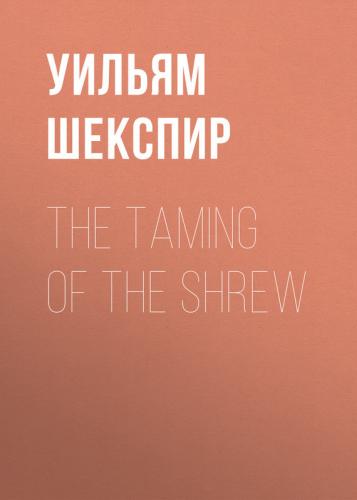[They sit down]
A flourish of trumpets announces the play
ACT I. SCENE I. Padua. A public place
Enter LUCENTIO and his man TRANIO
LUCENTIO. Tranio, since for the great desire I had
To see fair Padua, nursery of arts,
I am arriv'd for fruitful Lombardy,
The pleasant garden of great Italy,
And by my father's love and leave am arm'd
With his good will and thy good company,
My trusty servant well approv'd in all,
Here let us breathe, and haply institute
A course of learning and ingenious studies.
Pisa, renowned for grave citizens,
Gave me my being and my father first,
A merchant of great traffic through the world,
Vincentio, come of the Bentivolii;
Vincentio's son, brought up in Florence,
It shall become to serve all hopes conceiv'd,
To deck his fortune with his virtuous deeds.
And therefore, Tranio, for the time I study,
Virtue and that part of philosophy
Will I apply that treats of happiness
By virtue specially to be achiev'd.
Tell me thy mind; for I have Pisa left
And am to Padua come as he that leaves
A shallow plash to plunge him in the deep,
And with satiety seeks to quench his thirst.
TRANIO. Mi perdonato, gentle master mine;
I am in all affected as yourself;
Glad that you thus continue your resolve
To suck the sweets of sweet philosophy.
Only, good master, while we do admire
This virtue and this moral discipline,
Let's be no Stoics nor no stocks, I pray,
Or so devote to Aristotle's checks
As Ovid be an outcast quite abjur'd.
Balk logic with acquaintance that you have,
And practise rhetoric in your common talk;
Music and poesy use to quicken you;
The mathematics and the metaphysics,
Fall to them as you find your stomach serves you.
No profit grows where is no pleasure ta'en;
In brief, sir, study what you most affect.
LUCENTIO. Gramercies, Tranio, well dost thou advise.
If, Biondello, thou wert come ashore,
We could at once put us in readiness,
And take a lodging fit to entertain
Such friends as time in Padua shall beget.
Enter BAPTISTA with his two daughters, KATHERINA
and BIANCA; GREMIO, a pantaloon; HORTENSIO,
suitor to BIANCA. LUCENTIO and TRANIO stand by
But stay awhile; what company is this?
TRANIO. Master, some show to welcome us to town.
BAPTISTA. Gentlemen, importune me no farther,
For how I firmly am resolv'd you know;
That is, not to bestow my youngest daughter
Before I have a husband for the elder.
If either of you both love Katherina,
Because I know you well and love you well,
Leave shall you have to court her at your pleasure.
GREMIO. To cart her rather. She's too rough for me.
There, there, Hortensio, will you any wife?
KATHERINA. [To BAPTISTA] I pray you, sir, is it your will
To make a stale of me amongst these mates?
HORTENSIO. Mates, maid! How mean you that? No mates for you,
Unless you were of gentler, milder mould.
KATHERINA. I' faith, sir, you shall never need to fear;
Iwis it is not halfway to her heart;
But if it were, doubt not her care should be
To comb your noddle with a three-legg'd stool,
And paint your face, and use you like a fool.
HORTENSIO. From all such devils, good Lord deliver us!
GREMIO. And me, too, good Lord!
TRANIO. Husht, master! Here's some good pastime toward;
That wench is stark mad or wonderful froward.
LUCENTIO. But in the other's silence do I see
Maid's mild behaviour and sobriety.
Peace, Tranio!
TRANIO. Well said, master; mum! and gaze your fill.
BAPTISTA. Gentlemen, that I may soon make good
What I have said- Bianca, get you in;
And let it not displease thee, good Bianca,
For I will love thee ne'er the less, my girl.
KATHERINA. A pretty peat! it is best
Put finger in the eye, an she knew why.
BIANCA. Sister, content you in my discontent.
Sir, to your pleasure humbly I subscribe;
My books and instruments shall be my company,
On them to look, and practise by myself.
LUCENTIO. Hark, Tranio, thou mayst hear Minerva speak!
HORTENSIO. Signior Baptista, will you be so strange?
Sorry am I that our good will effects
Bianca's grief.
GREMIO. Why will you mew her up,
Signior Baptista, for this fiend of hell,
And make her bear the penance of her tongue?
BAPTISTA. Gentlemen, content ye; I am resolv'd.
Go in, Bianca. Exit BIANCA
And for I know she taketh most delight
In music, instruments, and poetry,
Schoolmasters will I keep within my house
Fit
